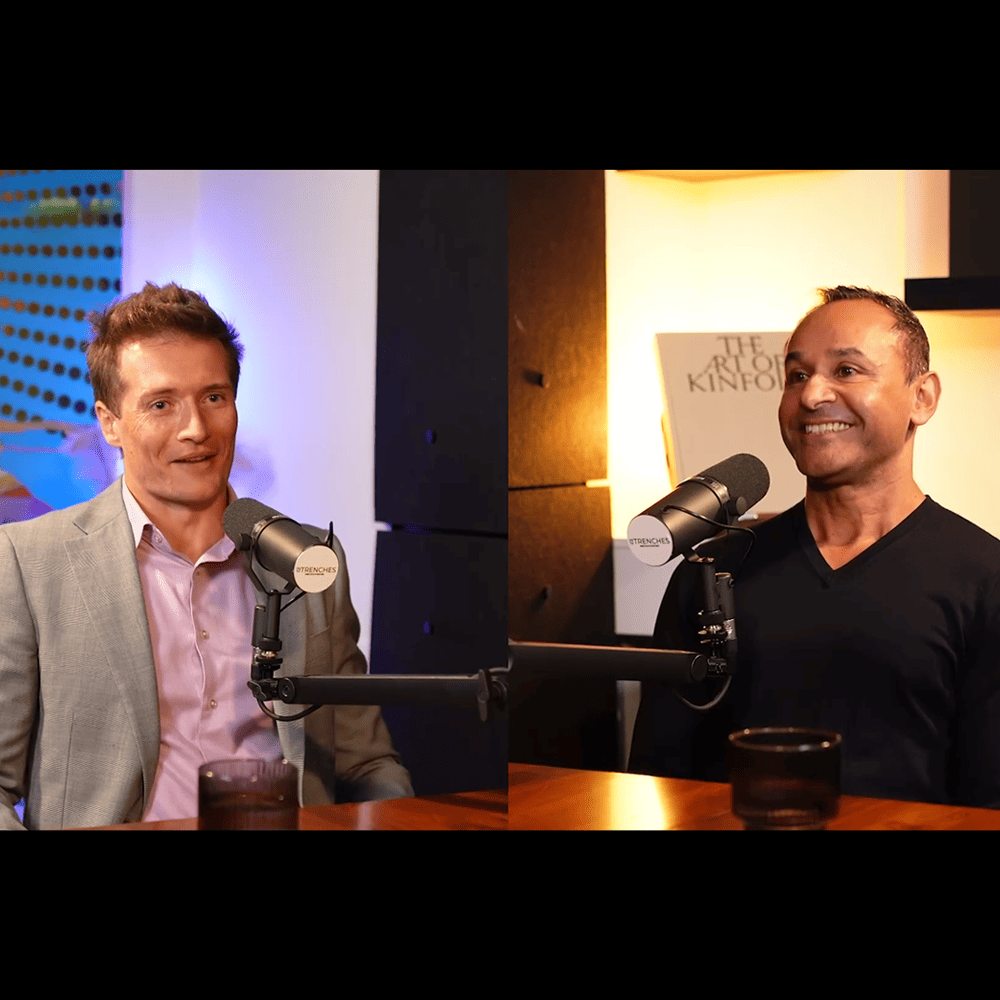
In 2025, trying to read the Australian economy feels a lot like checking the weather forecast — sunny one moment, stormy the next. Unemployment is low, inflation is sticky, retail spending is sluggish, and yet, businesses on the ground are navigating a reality that often doesn’t match the headline data.
This disconnect between macroeconomic signals and actual business conditions is exactly what the latest In the Trenches podcast episode dives into. Featuring Daniel Gradwell (ANZ), a respected economist with a knack for plain speaking, this episode is a must-listen for anyone tired of economic theory that doesn’t line up with what’s happening in their day-to-day operations.
So, if you’re a business owner, entrepreneur, or manager wondering how to make decisions in a climate that feels confusing at best and contradictory at worst — this one’s for you.
The Australian Economy in 2025: A Tale of Two Realities
At a glance, some economic indicators suggest things should be humming along. But dig a little deeper and the picture changes.
Daniel Gradwell (ANZ) lays it out clearly in the podcast: while national data may say one thing, the stories coming from small and mid-sized businesses tell another. This is the crux of the issue — traditional economic models are built to track averages and trends across millions of people. They’re not designed to reflect the day-to-day pressures of a plumbing business in Newcastle or a digital agency in Melbourne.
The Australian economy in 2025 is, in many ways, caught between old frameworks and new challenges. COVID’s aftershocks, global instability, and shifting consumer behaviour mean that relying solely on GDP figures or unemployment rates to guide your business strategy is, frankly, outdated.

The Problem with Traditional Economic Thinking
One of the most powerful insights from this episode of In the Trenches is Gradwell’s critique of traditional economic models — especially when it comes to economic advice for business owners.
These models are useful, but they often fall short when real-world nuance is needed. They’re great at showing averages, but poor at capturing volatility. A region might show low unemployment overall, but that doesn’t mean businesses aren’t struggling to find qualified staff. Or consumer sentiment might look strong nationally, while in reality, local customers are tightening their belts.
As Gradwell puts it: “The data’s not wrong — it’s just incomplete.” And when you’re running a business, incomplete data can lead to bad decisions.
Real-World Economics for Real People
What’s the alternative? Real-world economics Australia — a bottom-up view of how people are behaving, spending, and adjusting to uncertainty.
This is where Gradwell shines. Throughout the episode, he shares examples of how tapping into customer behaviour, staff feedback, supplier signals, and community sentiment often provides more valuable insight than top-down forecasts.
This human-first approach to understanding the Australian economy in 2025 helps businesses stay grounded. Instead of reacting to what “should” be happening, business owners can respond to what is happening — in their suburb, their industry, their customer base.
It’s a reminder that smart businesses don’t wait for permission from economists to act. They listen, observe, adapt, and keep moving.
Navigating Uncertainty: What Actually Works
So, what does this mean in practice? If economic theory isn’t much help, what should businesses actually be focusing on?
Here are a few sharp takeaways from the episode that cut through the noise:
1. Track your own data more closely
Forget national averages. Start building your own dashboard of key metrics: customer retention, sales cycles, staff churn, lead time on materials. Your data tells a clearer story than any press release ever will.
2. Lean into conversations
Whether it’s talking with your accountant, your suppliers, or your frontline team, qualitative insights matter. The best economic advice for business owners in this environment often comes from those closest to the coalface.
3. Prioritise agility over perfection
In the current economy, rigid long-term planning can backfire. It’s better to work in smaller cycles, test fast, and pivot quickly. You don’t need to nail every forecast — you just need to be able to course correct without delay.
4. Reassess your assumptions
If you’ve been holding back on investment because “the economy’s bad,” ask yourself — bad for who? Plenty of Aussie businesses are growing right now because they’ve stopped waiting for the green light and started looking for opportunity in the gaps.
5. Stay grounded, not paralysed
Yes, things are uncertain. But if you let that uncertainty freeze your decisions, you risk falling behind. Daniel Gradwell (ANZ) reminds listeners that business confidence often follows action, not the other way around.
2025 Focus Areas for Aussie Business Leaders
Toward the end of the podcast, the conversation turns to what leaders should actually focus on amid the noise. Here’s what Gradwell suggests — and what makes this episode of In the Trenches a valuable listen.
Customer-centric strategy
Rather than obsessing over the big picture, focus on delivering value locally. What do your customers want right now? How have their priorities changed? There’s gold in paying attention to the details.
Cost control with context
Cutting costs is a reflex during tough times. But smart cuts don’t just save money — they protect your ability to operate and grow. Review your expenses through a lens of long-term value, not short-term panic.
People and culture
Many businesses are struggling to retain staff. Instead of blaming “the economy,” think about what you can do to improve culture, provide flexibility, and keep your team motivated. A good team is one of your biggest advantages in turbulent times.
Diversification and digital growth
From supply chains to marketing channels, diversification is a hedge against uncertainty. Whether it’s exploring new revenue streams or investing in automation, small moves now can pay big dividends down the track.

The Podcast That Gets It
There’s no shortage of podcasts trying to explain the economy, but In the Trenches does something different. It gives space to the kinds of real-world economics Australia needs more of — grounded, no-nonsense insights that reflect what business owners are actually going through.
This episode with Daniel Gradwell (ANZ) is especially timely. It doesn’t pretend to have all the answers. Instead, it asks better questions, challenges lazy assumptions, and offers a framework that business leaders can actually use.
Whether you’re running a hospitality venue, a SaaS startup, a manufacturing plant, or a retail chain, this isn’t just theory. It’s usable, practical, and — crucially — honest.
Why You Should Listen Today
If you’re tired of economists telling you things are fine when your books say otherwise, this episode is for you. If you want economic advice for business owners that takes into account how things really work — not how they look in spreadsheets — this is the podcast to queue up on your next commute.
Listening to In the Trenches podcast isn’t just a good use of 40 minutes — it might be the perspective shift that helps you see 2025’s economic landscape for what it really is: complex, yes, but also full of opportunity for those paying attention.
Final Thought
The Australian economy in 2025 is not easy to summarise in a chart. But it is navigable — if you’re using the right map. Daniel Gradwell (ANZ) and the team behind In the Trenches podcast have offered something rare: an honest look at where we are, and a real sense of how to move forward.
Because at the end of the day, success isn’t just about surviving tough times. It’s about knowing where to dig, what to trust, and when to back yourself — even when the data’s a mess.
